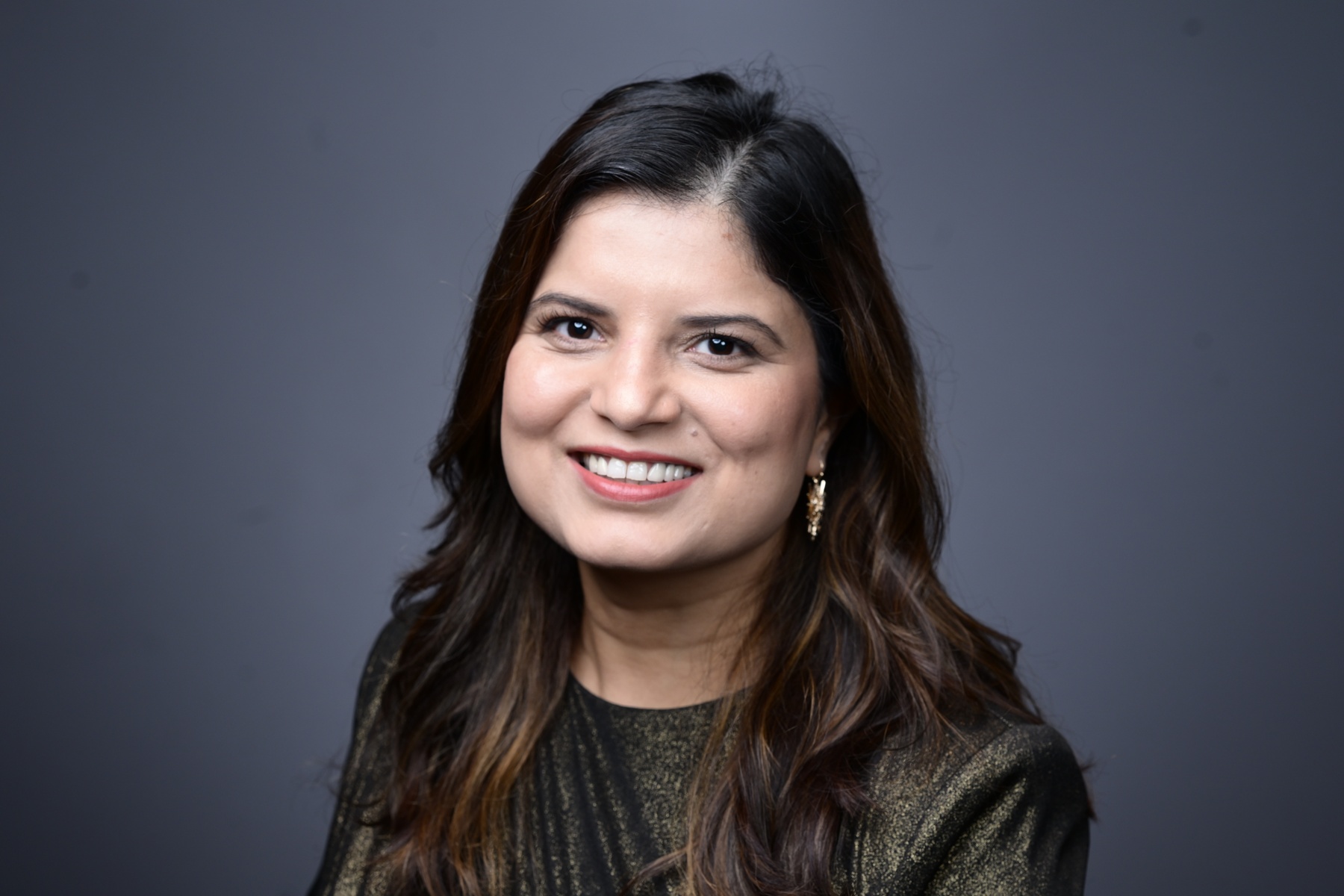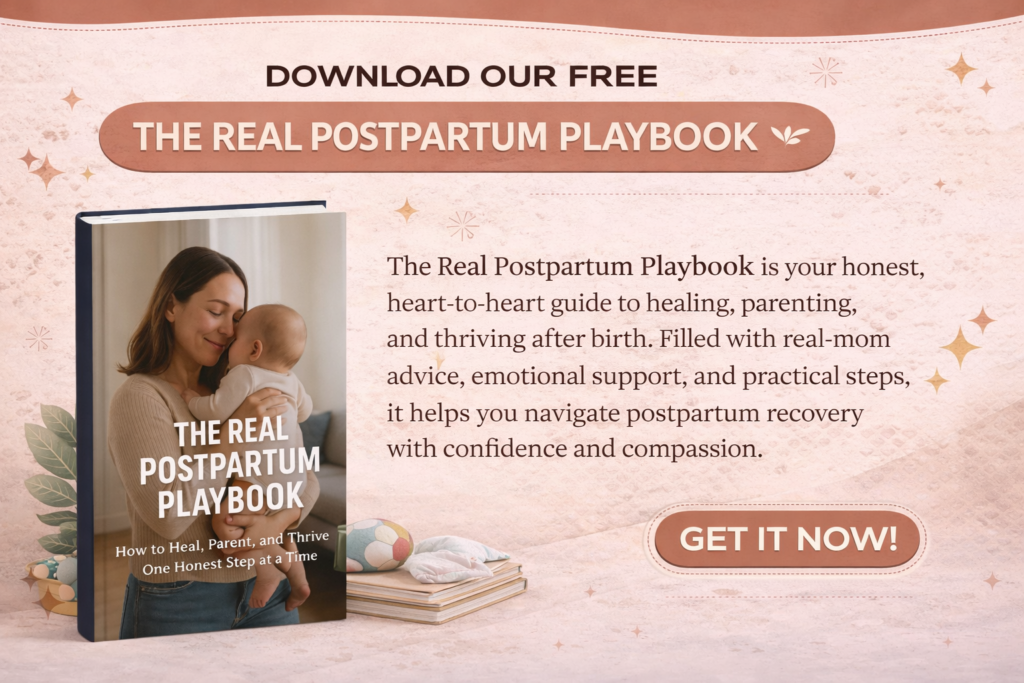How Hitting Rock Bottom Helped Me Rise | The Founder Story
You’d think being a physician and having a baby at the hospital where you work would make postpartum care seamless.
“You’d be wrong.” – Dr. Manisha Ghimire | CEO and Founder of Momkinz
The Beginning: When Everything I Knew Wasn’t Enough
I came to America from Nepal in 2011 with dreams and determination. By 2015, I was well into my residency program, working toward becoming the doctor I’d always envisioned. Then life happened. I got pregnant during my second year of college.
The moment I saw those two pink lines, joy mixed with a creeping anxiety I couldn’t name. I had only two weeks of vacation left for the entire year, and I’d already used them early in the program.
When I approached my program director about maternity leave, the hesitation in their voice was palpable. After much back-and-forth, they agreed to six weeks but only if I extended my residency by a month.
“I said yes. What choice did I have?”
The Reality Check: When Expertise Meets Motherhood
Having my baby at my hospital felt like it should be an advantage. I knew the staff, understood the procedures, and spoke the medical language. But as I lay in that hospital bed, holding my newborn son, I realized something terrifying: all my medical knowledge meant nothing when it came to being a mother.
Nobody talked to me about breastfeeding beyond “it’s natural.” Nobody mentioned I’d need special equipment, support, or that my body might not cooperate with my expectations. When I was discharged, I walked out of those familiar hospital doors feeling more lost than I’d ever felt in my life.
The breast pump I ordered through insurance would take two weeks to arrive. Two weeks. I was supposed to return to work in six, and here I was, three days postpartum, sitting in my car outside the pediatrician’s office, crying because my baby wouldn’t latch.
“I didn’t know what I was doing wrong.”

The Breaking Point: When Being a Strong Mom and Doctor Still Wasn’t Enough
Those early weeks blur together in my memory, a haze of exhaustion, tears, and the crushing weight of feeling like I was failing at the most fundamental thing women are “supposed” to know how to do. I pumped with a hand-held pump until my hands cramped. My baby cried. I cried more.
By the time the breast pump finally arrived, my son was used to formula, and I was drowning in guilt and physical pain. The engorgement, the soreness, the feeling that my body was betraying me, it was overwhelming.
I made the heartbreaking decision to stop breastfeeding.
“It’s been years, but that sentence still breaks me.”
A New Chapter in Motherhood: When Postpartum Hope Turned to Heartbreak
A year later, we moved to Maryland, and I got pregnant again. This time would be different, I told myself. This time, I was prepared.
At our anatomy scan, we discovered our daughter had severe kidney abnormalities. Every two weeks, we’d drive to appointments, hear concerning news, and drive home in tears. The uncertainty was suffocating.
At 35 weeks pregnant, we finally got an appointment at the Children’s Hospital of Philadelphia. What we heard there shattered our world: our daughter had multiple complications and might not survive.
I went into labor that very day, not from the medical intervention, but from the sheer emotional trauma. Can you imagine? I was so devastated by the news that I didn’t even realize I was in active labor during the two-hour drive home. I walked from the parking lot to the delivery room fully dilated.
“My body moved through labor, but my heart felt like it wasn’t even in the room.”
The Long Road After Birth: How I Went From Barely Coping to Fully Living
Our daughter was born silent. She was rushed to the NICU, unable to feed, weighing just four pounds. For two months, I drove 1.5 to 2 hours each way, every single day, to see her. I’d arrive in the morning with my breast pump, spend the day advocating for her care, and drive home in the evening, exhausted and emotionally drained.
When we finally brought her home with a feeding tube, I thought the hardest part was over. I was wrong again.
This time, I had support for the baby’s physical therapy, speech therapy, and specialized nursing care. But for me? An eight-week postpartum appointment where I was diagnosed with depression, handed a prescription, and sent home. No follow-up. No check-ins.
“No acknowledgment that the mother might need healing, too.”
The Awakening: When a Physician Becomes a Patient
The irony wasn’t lost on me. Here I was, a doctor who regularly discussed depression and anxiety with patients, and I couldn’t recognize it in myself. For five years, I worked night shifts while caring for Sanaya’s complex medical needs, raising my son, and slowly losing myself in the process.
The headaches became constant. The exhaustion was bone-deep. I snapped at my children over small things. I felt like I was watching my life from the outside, never fully present, never fully myself.
That’s when I realized:
“I had spent so much time surviving that I had forgotten how to live.”
The Transformation: How Postpartum Self-Care Became a Lifeline for My Mental Health as a Mom
Five years after my daughter’s birth, I finally started putting myself back together. It began with a small meditation, walking, and taking five minutes to drink my coffee while it was still hot. These tiny acts of self-care felt revolutionary.
As I healed, I found my voice again. I made the bold decision to leave night shifts and transition to telemedicine, giving myself the flexibility to be present for my family while also being present for myself.
But the biggest revelation came when I started talking to other mothers. Every single one had a story. Lactation struggles. Sleep deprivation. Postpartum depression. Birth trauma.
“We were all walking around carrying these experiences alone, thinking we were the only ones who couldn’t figure it out.”
The Purpose Behind the Pain: How I Turned My Motherhood Challenges Into Power
That’s when I knew I had to do something bigger than just healing myself. I had to create what I wish had existed when I was drowning in those early days of motherhood.
Momkinz was born from this realization: a platform where mothers don’t have to navigate the chaos alone, where they can find resources, support, and most importantly, community.
“Where they can discover that struggling doesn’t mean failing, and that asking for help is the bravest thing you can do.”
The Message: You Are Not Alone
To every mother reading this: your struggle is valid. Your pain is real. Your experience matters.
Whether you’re sitting in a hospital room wondering if you’re doing everything wrong, driving endless hours to specialist appointments, or lying awake at 3 AM wondering when you stopped recognizing yourself in the mirror, you are not alone.
I created Momkinz because I wish someone had told me that it’s okay to not have all the answers. That being a mother doesn’t mean losing yourself. That asking for help isn’t a weakness, it’s wisdom.
We are building more than a platform; we’re building a community where mothers can not just survive, but thrive. Where vulnerability is met with understanding, and where every mother knows she is seen, supported, and valued.
Because here’s what I learned: you can’t pour from an empty cup. And it’s time we stopped expecting mothers to.
“Momkinz is a labor of love, developed by a mother and physician who learned the hard way that expertise doesn’t shield you from the raw, beautiful, terrifying journey of motherhood. If this story resonates with you, know that you’re exactly the reason this platform exists. You matter. Your experience matters. And you deserve all the support in the world.” – Dr. Manisha Ghimire
Ready to Find the Support You Deserve?
Whether you’re looking for:
- Postpartum support in Raleigh, NC
- Lactation consultants in Charlotte
- Doula services in Durham
- Postpartum therapy in Cary, NC
Momkinz is the easiest way to find trusted, local, and expert help.
RELATED ARTICLES:
https://kevinmd.com/post-author/manisha-ghimire
https://data.cms.gov/tools/medicare-revalidation-list/provider/I20240517001279
https://health.usnews.com/doctors/manisha-ghimire-3959857
https://doctor.webmd.com/doctor/manisha-ghimire-28aef9a6-dec5-11e7-9f4c-005056a225bf-overview




